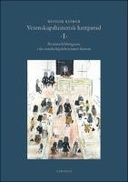Explore

Why is it important for institutions of higher education to have researchers as teachers? This book aims to answer this question by examining the history of the Swedish system of higher education through a special lens: the struggle of educational institutions for the right to make their own doctors. The theme of doctoral training, evolving at the intersection of research and education, reflects broader processes, such as the system’s disintegrating expansion.
The Doctor of Philosophy degree was introduced in 1870 at Swedish universities, whose largest faculties thus gained the same status as their higher faculties. However, the universities could not maintain a monopoly on the right to confer this scholarly title. Doctorates were eventually introduced at institutions for professional training – for surgeons, engineers, veterinarians, agronomists, economists, dentists, foresters, pharmacists. In 1969, all different degrees were replaced by a standardized doctorate, and doctoral education became the subject of uniform regulation. Matters became more complex in 1977, when a political reform brought all post-secondary education under the umbrella concept of the university, requiring that training in nursing, teaching, and other fields be research-based. One chapter examines how institutions for fine arts education were transformed by a clash between path-dependent academic norms and institutions whose goals were not scientific. This process led to a new, artistic doctoral degree in 2009, which broke up the uniform regulation, and in 2013 to the recognition of artistic research as a mission in the Higher Education Act.
By combining perspectives from science and technology studies, educational history, and other fields, the book sheds new light on an institution that plays a key role in the formation of knowledge bases that are crucial for professions. With a systems perspective that embraces institutions for professional and practical training, it challenges an often overly university-centric historiography of higher education.
This book is included in DOAB.
Why read this book? Have your say.
You must be logged in to comment.
Rights Information
Are you the author or publisher of this work? If so, you can claim it as yours by registering as an Unglue.it rights holder.Downloads
This work has been downloaded 15 times via unglue.it ebook links.
- 15 - pdf (CC BY-NC-ND) at OAPEN Library.
Keywords
- conceptual history
- Higher education system
- institutionalist history
- politics of doctoral education
- professional knowledge formation
- Sweden
- thema EDItEUR::J Society and Social Sciences::JB Society and culture: general::JBC Cultural and media studies::JBCC Cultural studies::JBCC9 History of ideas
- thema EDItEUR::J Society and Social Sciences::JN Education::JNB History of education
- thema EDItEUR::N History and Archaeology::NH History
- thema EDItEUR::P Mathematics and Science::PD Science: general issues::PDX History of science
Links
DOI: 10.22188/kriterium.62Editions

